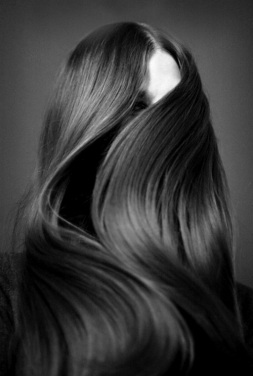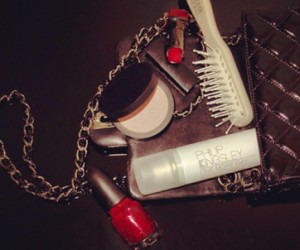MOISTURISE
The moisture content of your hair’s cortex (fancy word for the core of your hair!) is what makes it manageable, shiny, bouncy, elastic and less prone to breakage – a real necessity for hair to look and feel fabulous! To restore hydration and get your tresses in stunning shape for New Years, use a pre-shampoo conditioning treatment once a week. You can even sleep with it in. We make one called ‘Wheat Treat‘ that was originally formulated for Audrey Hepburn, the ultimate style icon. Daily protective sprays can also be lock-savers when battling the cood winds and effects of indoor heating.
USE THE CORRECT SHAMPOO & CONDITIONER
Use the correct shampoo and conditioner for your hair texture to help it look its best. Contrary to popular belief, hair does not get used to the same shampoo – its needs might simply change. Always choose your shampoo based on your hair type (i.e. whether it is fine, medium, coarse or African Caribbean) – and then a conditioner based on your hair length, diameter and level of processing. Hair tends to be drier in winter, so a more moisturising conditioner might be needed.
COMB THROUGH CONDITIONER
Gently comb through your post-shampoo conditioner with a wide tooth comb, starting at your ends and working up, and rinse as usual. This helps to evenly distribute the product over your hair, coating and smoothing the hair cuticle, locking in moisture and adding shine.
REVITALISE HAIR WITH DRY SHAMPOO
Too busy to wash and dry your hair as often as you’d like? Invest in a good dry shampoo with scalp benefits. We have one called ‘Revivogen’ that adds body and shine, while soaking up excess sebum and soothing the scalp. A perfect pre-party tool to maximize volume and vanquish dull and greasy roots. If you have fine hair, you can even spray this onto your roots at the end of the day after shampooing in the morning to boost body. It even comes in a handbag friendly 50ml size for volume on the go!
TREAT YOUR SCALP TO SOME TLC
Are you prone to having a flaky itchy scalp? Well, they tend to flare up during the winter months due to increased emotional stress and cold weather. Use a weekly exfoliating scalp mask and a daily flaky/itchy scalp toner and shampoo to keep your scalp crystal clear. You should also try to minimize consumption of dairy, white wine and champagne as these are known to worsen dandruff in certain individuals. Stick to red/ mulled wine (in moderation!) and nibble on some protein packed almonds and whole wheat goodies. Your hair (and your skin) will thank you.
TRESS TAMER
Hair gets frizzier in the winter due to moving in and out of heated areas, drizzly weather and taking on and off warm hats – the constant change in atmospheric moisture causes your hair to re-configure its shape throughout the day. Use a product containing light-weight silicones to guard your hair against moisture changes and to keep your style smooth and ready for evening events.
OPTIMIZE YOUR DIET
A balanced diet is vital to hair growth – and Winter is the perfect time to indulge in some hair essential amino acids found in proteins such as turkey, roast chicken, eggs and ham. Hearty beef stews and Sunday Roasts are also a superb way to up your iron intake – a mineral essential for healthy hair growth. Eat at least 120g (in weight) of protein with breakfast and lunch and red meat at least once a week.
STYLE RIGHT
Always use a heat protective spray or protective serum. When you do use straighteners, don’t go over the same area repeatedly or pull too hard. This can break and damage your hair even more rapidly. If your straighteners start to feel “sticky”, it’s time to change them. Don’t know what to do with your end-of-day messy mane? Try an Updo or chic braided hairstyle for the party season – no straighteners needed!




